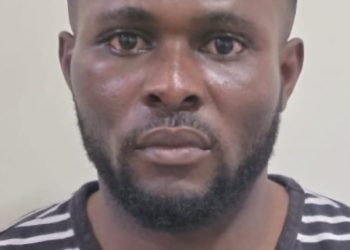The Chartered Institute of Forensics and Certified Fraud Investigators of Nigeria (CIFCFIN) has deplored Nigeria’s rising debt burden occasioned by non-completion or outright abandonment of projects by development partners and those funded by donor agencies.
CIFCFIN’s Founder/Chairman, Governing Council, Dr Dr. Iliyasu B. Gashinbaki, in a speech delivered at the 12th direct membership and fellowship award ceremony in Abuja, called on the federal government to immediately initiate a comprehensive forensic performance audit of all donor-funded and development-partner-supported projects across the country to help stamp out the fraud prevalent in such projects.
He said the audit will be designed in such a way to independently verify the level of implementation; trace the flow as well as utilization of funds, uncover instances of misappropriation or abandonment and ensure that responsible parties are held accountable.
The founder assured that such a strategy is not only necessary to restore public trust and donors’ confidence, but will also be critical in safeguarding Nigeria’s future access to development financing.
He warned that Nigeria’s reliance on developmental partners for critical infrastructure financing has caused mounting debts with negligible results, adding that a report published by Corporate Accountability & Public Participation Africa (CAPPA, revealed that the country will repay $6.25 million annually for 40 years (totaling $250 million, excluding interest) for a World Bank-funded water project that failed to deliver.
“The Third National Urban Water Sector Reform Programme approved in 2015, with the aim of improving water access in Ekiti, Bauchi and Rivers States; but yet a decade later, residents still rely on water vendors paying N500-N40,000 monthly for contaminated supplies.
“At Ero Dam in Ekiti State, where a $50 million World Bank loan was invested there to provide clean water for thousands, engineers installed modern pumps, pipelines, and treatment systems but today, those pumps are silent and the pipes dry because nobody factored electricity as the dam needs steady power to function,” he lamented.
According to him, the Bauchi development partners spent millions laying new pipes but today half of those pipes are broken and water that trickles through them are contaminated leaving children sick.
He said in Rivers State, the project was stalled after releasing $30 million, where the blame was placed on conflicts with another loan.
“But here’s the cruel twist as these states must still repay every penny, even though the projects collapsed,” the founder lamented further.
He said the deployment of Forensic Performance Audit would ensure that such ugly situations do not recur as it entails “following the money; tracing every Dollar from loan approval; demanding evidence on why the projects collapsed, stalled or failed and ensuring that those found culpable face the consequences.”
Gashinbaki told the new members and fellows of the Institute that their work is clearly cut out for them in the face of mounting corruption and other forms of criminality in the country. “You should see yourselves as change agents and change makers that have been duly enlisted in the anti-corruption army that would transform Nigeria into greatness.”
Earlier in his welcome address, the Chairman, Professional Training & Standards (PT&S) of the Institute, Prof. Michael A. Ayeni, said the training has equipped the graduating direct members and fellows, with more than just technical skills. “It has shaped their judgment, sharpened their investigative abilities, and prepared them to be key players in combating financial crimes and frauds in both the public and private sectors. Whether they go on to work with corporations, law enforcement agencies, regulatory bodies, or within their firms, the knowledge and discipline they carry with them will serve as a cornerstone of trust in every institution they touch.”
There were 152 inductees at the 12th direct membership and awards of fellowship of CIFCFIN which took place at the National Institute for Legislative and Democratic Studies (NILDS) in Abuja comprising of 95 direct members and 57 fellows.









